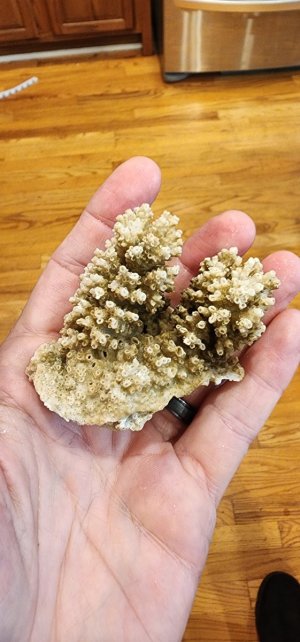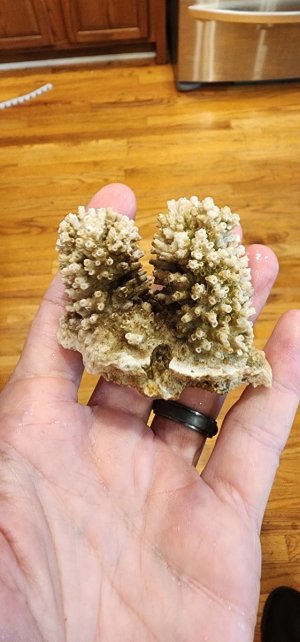So, this thing is my "hero", the piece of "rock" in my collection I am completely and utterly enamored with, that I want to put in a focal point of my aquascaping efforts.
I'm pretty sure this was an acropora of some sort... anyone have any idea what variety?
I've read of corals picking back up where they left off, though I think the article was talking about "hibernating" or "senescent" corals waiting out a water condition change in the wild, and not completely dead specimens... IIRC it was about a reef off of the Spanish coast.
Any chance that, with the right "seed", I could get this thing growing/living with the same general sort of coral animal?
Should I treat it with anything first? Clean it up with some hydrogen peroxide or heavily diluted bleach or something?
No bananas, kids ate them all - hand for scale.


I'm pretty sure this was an acropora of some sort... anyone have any idea what variety?
I've read of corals picking back up where they left off, though I think the article was talking about "hibernating" or "senescent" corals waiting out a water condition change in the wild, and not completely dead specimens... IIRC it was about a reef off of the Spanish coast.
Any chance that, with the right "seed", I could get this thing growing/living with the same general sort of coral animal?
Should I treat it with anything first? Clean it up with some hydrogen peroxide or heavily diluted bleach or something?
No bananas, kids ate them all - hand for scale.


